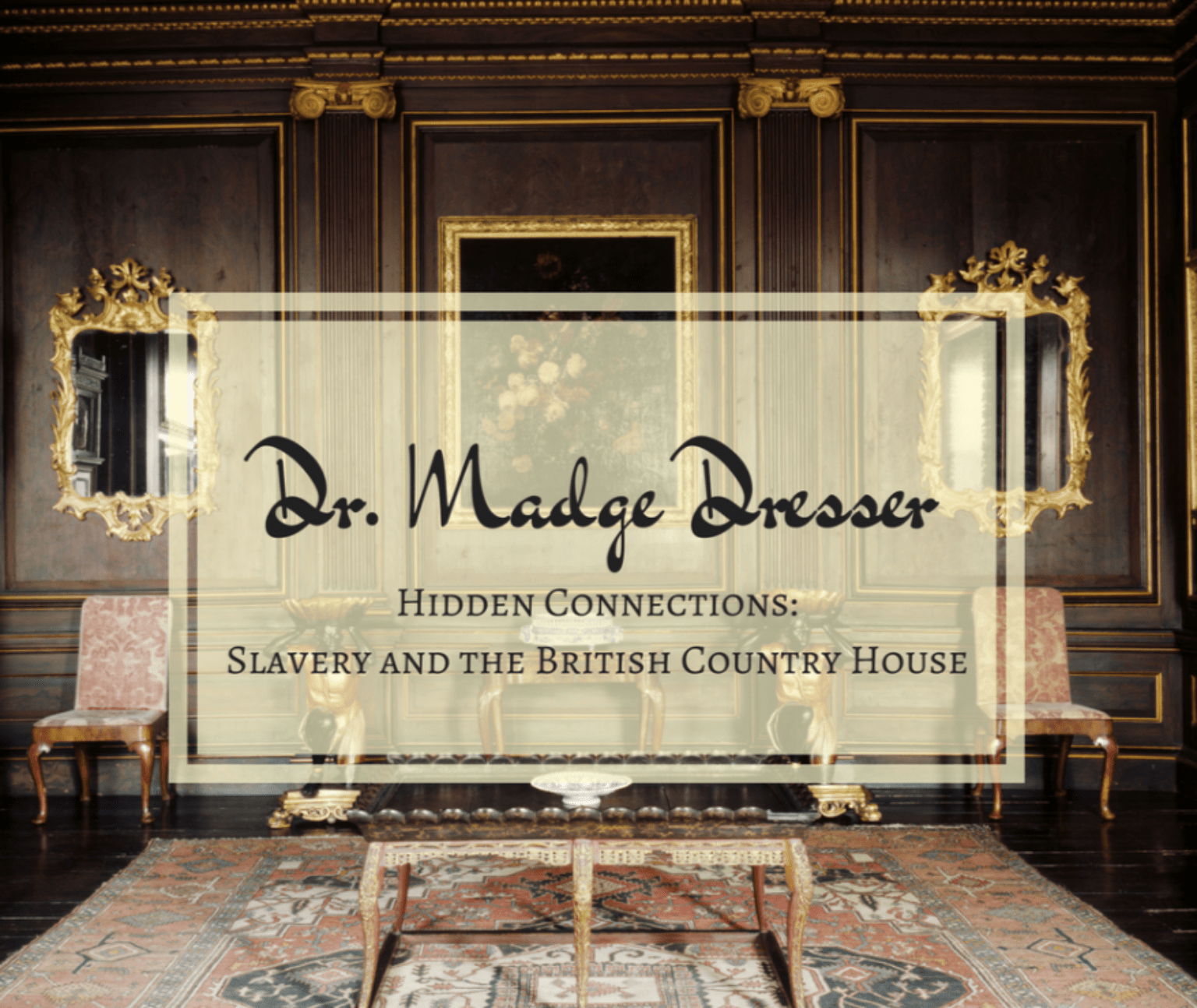

Hidden Connections: Slavery and the British Country House
Reception following lecture; $30 members; $40 non-members
To register: Please visit www.royal-oak.org/lectures or call 212-480-2889, ext. 201. Please use the Charleston Library Society’s code 18SCHLIB to receive the discounted co-sponsor price.
Dr. Madge Dresser recently retired as Associate Professor in History at the University of the West of England and remains a Visiting Senior Research Fellow. In 2017 she was appointed as an Honorary Professor at the University of Bristol in the Department of Historical Studies. She researched and taught about slavery at Colonial Williamsburg and Virginia Commonwealth University, and has made numerous appearances on radio and television worldwide. She has worked closely with the National Trust, Historic England, the Institute of Commonwealth Studies among a range of British institutions. She has published widely on the history of slavery and its impact on British society including the recently reprinted Slavery Obscured: The Social History of the Slave Trade in Bristol (2001, reprinted 2016), Slavery and the British Country House (2013) and in scholarly journals. She recently wrote a chapter in the forthcoming ‘The Country House: Past, Present and Future (Rizzoli, 2018). She is a Fellow of The Royal History Society, a Fellow of The Royal Society of Arts, and a trustee of the Bristol and Gloucestershire Archaeological Society
The British country house in all its opulence and refinement seems worlds away from the fetid horrors of a slave ship. However the trade in enslaved Africans and slave-produced goods fueled the wealth that funded the creation of many 17th-to-19th-century British stately homes. Slavery-related houses appear throughout the British Isles and are concentrated in the major slaving ports of London, Bristol and Liverpool. About 10% of elite country houses had associations with slavery, but other houses had indirect ties and consumed slave-produced goods. Some of Britain’s aristocratic house owners’ money resulted from the slave trade itself—invested in the South Sea Company whose purpose was to sell slaves to the Spanish Colonies. Others married heiresses with ties to plantations such as Baron Thomas Onslow, who built a Palladian mansion at Clandon Park in Surrey (NT) ‘owing to his judicious marriage to the heiress of a West Indian fortune.’ Even materials used in these treasure houses resulted from slave activities such as ‘Spanish mahogany’ staircases and mahogany furniture which actually derived from Caribbean slave plantations. Profits from slave labor at sugar plantations—whose products appeared on the country house dining table—aided family fortunes and funded stately home remodeling such as at Penryhn Castle (NT) whose Pennant family owned five plantations in Jamaica. These renovations were also linked to the wealth generated in the slave colonies of Virginia and the Carolinas. British family portraits might feature black servants, often as turbaned young pages at the side of their master or mistress as at Belton House in Lincolnshire (NT). The kneeling black figures adorning Dyrham Park’s (NT) interior are best understood against the longstanding family connections with slavery. Historian and Professor Dr. Madge Dresser will show these houses and explore some of the stories behind their connections with slavery to reflect on what they mean for our understanding of these beautiful buildings.